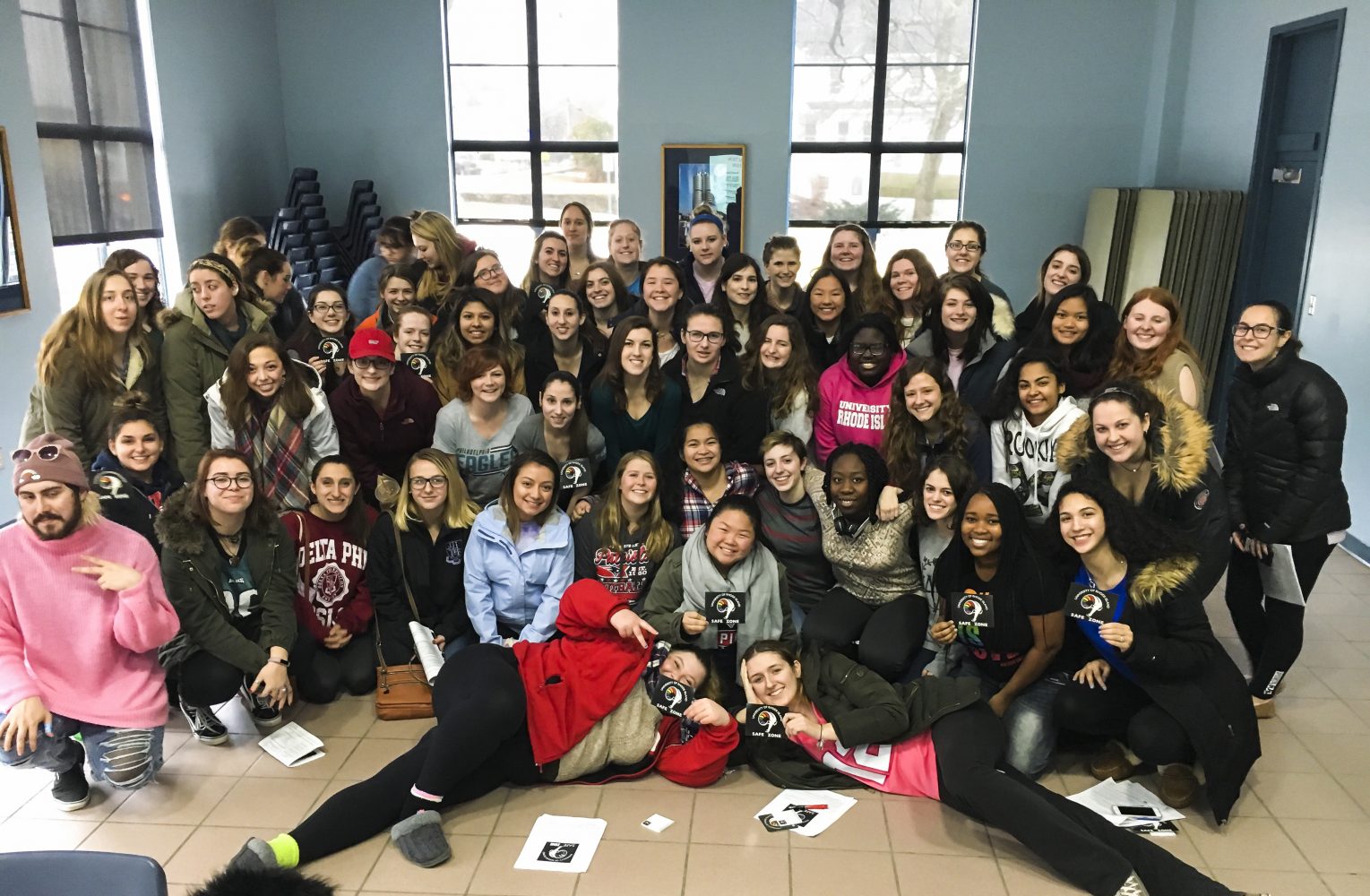Photo by Autumn Walter |CIGAR| With a world full of misconceptions, the Gender and Sexuality Center is hoping to bring students together to learn about the LGBTQ+ community.
Safe Zone is a training workshop that is provided by the Gender and Sexuality Center on campus that dedicates time to educating people about the Lesbian, Gay, Bisexual, Transexual, Queer/questioning and others (LGBTQ+), community,
Amanda Self, a graduate assistant who coordinates and facilitates the Safe Zone workshops, said that the LGBTQ+ community is strong and alive at the University of Rhode Island and that they want to make the University’s campus more “safer and more inclusive.”
“It’s definitely important because a lot of people have misconceptions about the LGBTQ community, or do not understand different aspects of it,” Self said. “So I think knowledge is power.”
This training workshop has been utilized by many different leadership positions on campus. Resident advisors and tutors, for example, are required to go through the training. Orientation leaders also take advantage of this educational program, as well as outside community members. Greek Life also utilizes Safe Zone, as there are multiple workshops being planned for them.
Although these are the most frequent people who request the training, Safe Zone isn’t limited to these groups. Students, staff, faculty and everyone on campus can partake in a Safe Zone workshop.
The training is facilitated in a two hour block, as this is because it is introductory. The facilitators go over terminology, different identities, the cycle of oppression, what coming out is like and how to be an ally.
According to Self, the workshops are very educational and informative. Although the facilitators are talking a lot, they do show videos and hold small/large group conversations.
“It is as interactive as possible, while also trying to get a lot of information out to people,” Self said.
The Gender and Sexuality Center also holds two open trainings a semester. These open trainings are called the Safe Zone Blitz. There are six different Safe Zone tracks that are covered there, the original Safe Zone track and then five advanced tracks. The advanced tracks include trans identities, non binary identities, race and ethnicity, spirituality and religion and a facilitator track.
The Safe Zone Blitz consists of two workshops a day. On Monday, they focus on the original Safe Zone training, and Tuesday to Friday, the advanced tracks are covered. Unlike the trainings where people have to request a workshop, this week long event is open to the community.
If someone is interested in being Safe Zone trained, all they have to do is reach out. Only four people are needed to hold a workshop and it is capped at 50 people.
Self encourages everyone to do it since it is very rewarding. She stressed that “we just want everyone to feel safe at URI, so this is just one step.”

